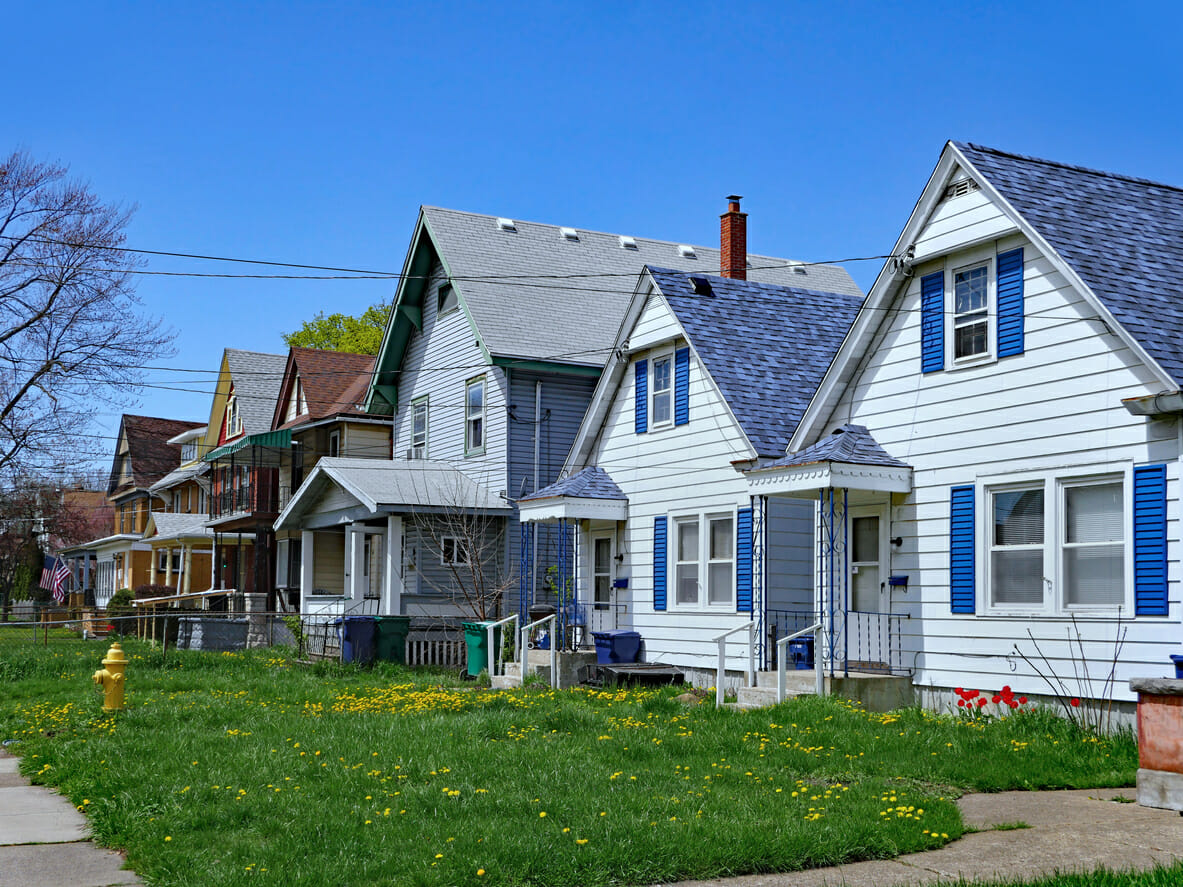When someone buys a home that belongs to a planned community with covenants, they are generally expected to pay fees and assessments to a homeowners’ association. Though most owners pay these fees without any problems, HOAs can take serious action if an owner refuses to keep up with their financial obligations.
Download our notice of intent to record a claim of lien template
Collecting HOA fees
HOAs offer homeowners some conveniences that other neighbourhoods do not. An association might take care of landscaping, road maintenance, and snow removal. It will also maintain community facilities like playgrounds, pools and gyms.
To cover costs associated with these services, owners who live in the community must pay monthly fees or dues to the HOA. To determine the amount that each owner must pay, the HOA usually develops a budget and divides the total expenses by the number of homes in the community. The association might also levy special assessments for one-time expenses if the HOA’s reserve fund isn’t large enough to cover the cost of an unexpected or significant repair or improvement.
The idea behind these fees is that if everybody covers a portion of the costs, the whole community benefits. HOAs that are properly maintained keep property values up, and create a more enjoyable environment for the people that live there.
No one likes paying fees, but most owners do pay them on time. Unfortunately, on rare occasions, HOAs may struggle to collect fees from an owner. The board cannot ignore this issue; it is obligated to collect what is owed so that the financial health of the association doesn’t suffer.
Based on the CC&Rs, and state law, most HOAs have the power to place a lien on a property if an owner becomes delinquent in paying monthly fees or special assessments. However, strict compliance with statutory procedures, and ample notice to the owner, is required before an association can take this step.
What is a lien?
Although HOAs can file legal collections actions against delinquent owners, the most common enforcement procedure is to record a lien against the owner’s property.
A lien is a claim for money owed that is asserted against a property rather than against a person. By filing a lien, the HOA can take meaningful enforcement action without having to cover substantially larger legal fees that would accumulate if a lawsuit were filed.
If the HOA cannot collect funds from an owner and is ready to start this process, it must first send notice to the owner of its intent to record a lien. The contents and timing of the pre-recording notice are set by statute in most states. Laws vary from state to state as to the exact content of lien notices; however, many will require that notices include the property’s owner, a brief description of the property, the amount of fees owed, fines (if permitted by state law), and the attorney’s fees due.
If the owner still fails to pay after receiving notice of intent, the HOA can move forward with filing the lien. Note that some states have additional procedural requirements that must be met before the HOA can file. If an association fails to comply with every step and process, the lien may be considered invalid.
An HOA lien will often automatically attach to the owner’s property. In many cases, the HOA will record a lien with the county recorder so that there is public knowledge of the lien. This way, if the owner tries to sell the property after the lien is recorded, it survives the transfer and remains on the property until the debt is paid off. A buyer would likely insist that the seller pay off the claim before the transfer, or ask for a corresponding reduction in the purchase price of the property.
Not only does a lien cloud the title to the property (meaning the seller does not own the property free and clear), it also hinders their ability to refinance the home.
What does a lien mean for a homeowner?
A lien puts immense pressure on the homeowner to pay the HOA what is owed. The lien makes it very hard for the owner to sell their home and move away from the association, and in extreme cases, the owner could even lose their home.
If an HOA has a lien on an owner’s property, it is possible for the association to foreclose, even if the home already has a mortgage on it. This course of action may be available, depending on the development’s CC&Rs, and state laws. In some states, the HOA can’t foreclose until the owner is a specific number of months, or a certain amount of money behind in payments.
The HOA can foreclose either through judicial foreclosure, or a nonjudicial foreclosure. With a judicial foreclosure, the HOA files a lawsuit requesting that a judge issue an order that the property be sold to satisfy the lien. In nonjudicial foreclosures, a trustee or commissioner (usually an attorney) is appointed to conduct the sale of the home according to the legal foreclosure procedure. While most associations would prefer to take the less costly nonjudicial foreclosure route, most states require that HOA foreclosures proceed judicially (a few states, such as California, will allow nonjudicial foreclosures).
Before it forecloses, the HOA must let the owner know of its intent to foreclose. As with lien notices, state laws have very specific timing and content requirements for pre-foreclosure notices.
Liens are a “last resort” remedy
The right to record liens, and foreclose on unpaid liens, is one of the most powerful tools that HOAs have to enforce payment obligations. But, it’s not something that associations should be doing (or want to be doing) on a regular basis.
Liens can create serious conflict between a homeowner and an HOA. While the lien may force owners to take care of their fees, they don’t make relationships better. Putting a lien on a home is a very strict process. It requires time and money, and the owner may choose to dispute it.
HOAs are strongly encouraged to try and resolve financial issues with owners in a less combative manner before taking this step. Speak with the owner and see if a payment plan can be worked out. Be clear about what their options are, and what could happen if payments are not made.
Conclusion
When owners fall behind on payments, the HOA board does have a responsibility to ensure those fees are paid. If a member fails to pay monthly dues or assessment fees, it affects the other members of the community. Common areas may suffer from a lack of funds, or special fees may be issued to everyone to cover maintenance costs or other expenses. There must be consequences for failing to pay fees. Otherwise, more owners may decide not to pay.
There are steps that the HOA can take against the delinquent homeowner, and in rare cases, the board may have to place a lien on their home. While this step is drastic, it may be necessary. If your HOA is pursuing this course of action, be sure to follow all steps and processes laid out by your governing documents, and state laws. If you have any questions, seek guidance from a lawyer.
Download Template
Download our claim for lien notice template



